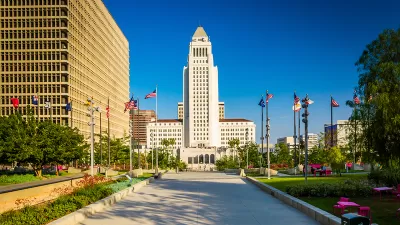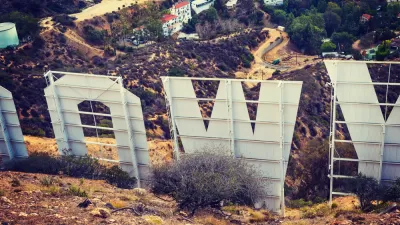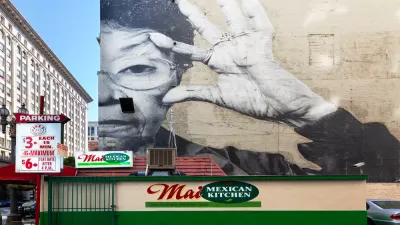Two major ballot initiatives would change the state of planning and development in L.A. As the housing and planning crisis reaches new levels, initiative leaders and land-use experts discuss how to create a viable path forward.

On April 27, the UCLA Ziman Center for Real Estate hosted a forum with The Planning Report and the Urban Land Institute-Los Angeles to discuss the state of planning in Los Angeles and competing planning initiatives currently under consideration in the city. The forum, titled "Never Let a Good Crisis Go to Waste," brought together key stakeholders from all sides of the issue.
Video from the forum can be found here. The forum focused on the underlying issues raised by the Neighborhood Integrity Initiative, which has potentially sweeping implications for large-scale development in the city of Los Angeles, and is being targeted for the March 2017 Los Angeles citywide election. Jill Stewart, Campaign Director for the Coalition to Preserve Los Angeles (backing the Neighborhood Integrity Initiative), explained:
(T)he guts of our measure is to force (the Mayor and City Council) to update the General Plan…We’re forcing them to link (planning) with growth for the first time in decades. That is the key issue in the Neighborhood Integrity Initiative. The moratorium is a wake-up slap in the face.
Discussants remarked on the state of the planning process in the city of Los Angeles, and on creating a viable path forward for addressing historic homelessness and housing affordability issues. The forum also discussed the Build Better LA affordable housing ballot measure, brought forward by a coalition of labor groups. Rusty Hicks, Executive Secretary-Treasurer of the Los Angeles County Federation of Labor, AFL-CIO, described the rationale for a competing ballot measure:
When we put Build Better LA forward, it was never envisioned to be the be-all-end-all solution to addressing housing. There’s a funding issue, there’s a process issue, there’s a planning issue, there are a number of other issues that many others are having conversations on and working on. We see this as a particular issue that others have not stepped forward on. We as organized labor have to be at the table because it affects so many workers, whether they have the benefit of a union or not.
Panelists also opined on the impacts of Mayor Eric Garcetti's call to revise the city's community plans by 2026, which would set the allowable size and density of development projects in neighborhoods throughout the city. Former member of the Los Angeles County Board of Supervisors and City Council member Zev Yaroslavsky also commented on the Mayor’s plan, explaining:
It falls way too short given the situation we’re in. A 10-year horizon is not short enough…The concept of having a plan redo in a time certain is good, but in the meantime-the spot zoning loophole remains in force. In order to be credible, the city has to plug that loophole while these discussions take place with stakeholders.

Alabama: Trump Terminates Settlements for Black Communities Harmed By Raw Sewage
Trump deemed the landmark civil rights agreement “illegal DEI and environmental justice policy.”

Planetizen Federal Action Tracker
A weekly monitor of how Trump’s orders and actions are impacting planners and planning in America.

Why Should We Subsidize Public Transportation?
Many public transit agencies face financial stress due to rising costs, declining fare revenue, and declining subsidies. Transit advocates must provide a strong business case for increasing public transit funding.

Understanding Road Diets
An explainer from Momentum highlights the advantages of reducing vehicle lanes in favor of more bike, transit, and pedestrian infrastructure.

New California Law Regulates Warehouse Pollution
A new law tightens building and emissions regulations for large distribution warehouses to mitigate air pollution and traffic in surrounding communities.

Phoenix Announces Opening Date for Light Rail Extension
The South Central extension will connect South Phoenix to downtown and other major hubs starting on June 7.
Urban Design for Planners 1: Software Tools
This six-course series explores essential urban design concepts using open source software and equips planners with the tools they need to participate fully in the urban design process.
Planning for Universal Design
Learn the tools for implementing Universal Design in planning regulations.
Caltrans
Smith Gee Studio
Institute for Housing and Urban Development Studies (IHS)
City of Grandview
Harvard GSD Executive Education
Toledo-Lucas County Plan Commissions
Salt Lake City
NYU Wagner Graduate School of Public Service





























